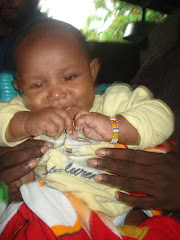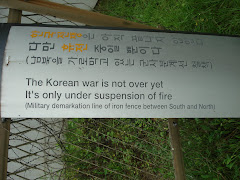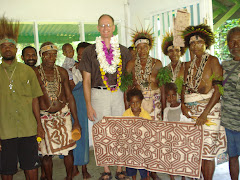Preached at Church of the Advent, San Francisco
May 22, 2008
Thank you for the invitation to preach tonight. It is a great pleasure to be here. This is a marvelous parish. From 1982 until 1985 I worked at The Church of St. Mary the Virgin in New York City; I am not totally unfamiliar with the tradition of parishes like this! The Anglo-Catholic movement within the Episcopal Church has been all about celebrating the Holy Eucharist—often every day—and especially on Sunday, the Lord’s Day, with reverence. We celebrate Corpus Christi with great splendor as a day to pause and acknowledge the centrality of the Eucharist to our Christian life. We are also celebrating the 150th anniversary of beautiful, reverent, Eucharistic worship and social ministry in this parish.
The Scriptures for tonight highlight two aspects of sacramental worship that I believe are very important for us tonight. First, from Deuteronomy, is the statement that we depend on everything the Lord says. It is not just about food, but a deep sense of dependence on, and interdependence with, God. And the lesson for the Israelites is that when they depend on God, keeping close to the vision and mission he has set before them they will be given the Promised Land. It is not a sign of weakness to be dependent on God; it is an essential strength of an inner vision. Our Christian faith is clear that all that we do comes from God and we offer it back to God. The second scriptural aspect is that Jesus is the living bread, the source of our power, the One we come back to over and over. Everything we do here is to call us deeper into a relationship with God through Jesus Christ. Jesus is the source of our vitality—our food, if you will. In his book The New Friars Scott Bessenecker characterizes these qualities of dependence on God and relationship with Jesus Christ as they might look in the lives of men and women seeking to live them out. In his words, what we are talking about is Incarnational, devotional, missional and marginal.
As a Franciscan, I am reminded by our Principals (our Rule) that the Eucharist is the very center of our lives. (And I know it is part of your identity here) Brothers and sisters gather as often as possible to celebrate the Eucharist. In some of our houses there is no priest, so the brothers set the sacrament on the Altar for devotional prayer. You haven’t lived til you’ve knelt on the dirt floor of a palm thatched church at 6:00 a.m. sweating in the 85 degree heat, mosquitoes swarming around you, malaria, diarrhea, and prickly heat rash calling to mind your mortal nature, PRAYING the divine praises with 15 or 20 young brothers. I have to admit there was a tiny voice (clamorous actually) asking: “What am I doing?” I realized I had to answer that question for myself or I wouldn’t be able to persevere the whole half hour. What does it mean that the Eucharist is the center of my life when it is so inconvenient, or I feel so poorly, so weak and tired?
What it means is that God is fully present to me and all of us. The Eucharist is Jesus. Our celebration is about God’s transforming power and love dwelling among us. Incarnational. All that is ordinary (not to mention miserable) can be imbued with meaning touched by grace and that which we rebelled against can become sweet through our devotions (just like Francis and the lepers). I can be glib and facetious about physical discomfort in remote tropical friaries—but I am serious when I say those early morning devotions are sweet. Bread and wine changed by faith and grace into the Body and Blood of Jesus Christ. Ordinary elements, ordinary people, become instruments of God’s power: working for peace and offering a reconciling ministry in the world. Those Solomon Island Franciscan Brothers then went out from 1999 until 2002, between warring guerrilla bands, and together with the Melanesian Brotherhood over the course of many months meeting the militants for prayer and conversation, forced them to put their guns down. Then they poured salt water on the guns and holy water on the militants. Depend on God and great things can happen; Jesus’ death on the Cross can break open our hearts to love even our enemies. This is the source of so-called politics of meaning.
Our mission as Christians is chartered by our sacramental Eucharistic encounter. If the Eucharist is the center of our lives, Jesus Christ dwelling in us and we live in him, we have the power! We’ve got the power to forgive, to heal and to absorb the slings and arrows of the world, to shine light into the dark places, to tolerate misunderstandings, to make love the guiding and governing operative principal of our life and mission. We adore the Blessed Sacrament or celebrate the Holy Eucharist because these sacramental encounters create in us the open space God needs in order to incorporate us into the ministry of Jesus Christ. This is our Promised Land.
This idea of adoration and devotion is a real spiritual discipline. It is about cultivating in ourselves an inner disposition to see God in all situations, to let go of the sense of our own importance and ground ourselves in God’s will, God’s way shown to us in Jesus Christ. When Dorothy Day was asked how she managed to do so much and give so much of herself, she replied that when she was faced with a really hectic day she would take twice as much time in the morning meditating before the Blessed Sacrament.
It is significant that we celebrate the 150th Anniversary of this parish tonight: over a century and a half of transformative ministry in the heart of San Francisco. That is why the bishop and other church and civic leaders are here. The sacramental life and worship at Church of the Advent has given birth to many different initiatives on behalf of the poor, the lonely, the outcast in this city. By making your home in the City Center, you are making a strong statement about where the Gospel hope and values belong: in the gritty heart of the city.
Of course we in this parish don’t under-gird the city all by ourselves. It would be arrogant to think so. But in collaboration with other churches, people of other faiths and people of good will and courage and integrity like Harvey Milk whose bust is being unveiled this evening, the offering of the people in this parish is taken up and used by God in ways that I am sure you are not fully aware of. It is important to remember and reflect on this interdependence, it is one of the most important insights of the Scriptures for tonight and Christian sacramental theology (as Teilhard de Chardin teaches): the wheat and the grape, with human beings and God become the Body and Blood of Christ; the Body of Christ is the Earth itself, it is every human being, every living creature, the vitality of life. The Blood of Christ is the blood of martyrs, every wounded victim of war and crime and accidents, every drop of dew, every stream of water, the oceans themselves the Chalice cleansing and renewing the world through it’s many life forms. Through interconnectedness our smallness becomes one of the greatest gifts God has given us. Franciscans, at least, love marginality or minority, we call it. I think it is liberating: you can experiment with different ministries. Yeast is small, but the impact of its leavening power is great. You can innovate. You can work with different people to make a larger impact on the neighborhood. You live by different priorities than the world’s and bring love where it is most needed. Eucharistic spirituality is not disheartened by the seeming smallness of things. We know that it is in the hidden corners of the world that God was pleased to come among us—long ago and still today. It is usually that part of yourself you feel most conflicted about, where you feel the most marginal, there is the source of the most grace and blessing when you suddenly realize nothing is beyond the transforming love of God. The wheat and grape must first be crushed to become the stuff of the Sacred Elements.
Tonight we celebrate the Incarnation of Jesus Christ, devote ourselves to live in gratitude and thanksgiving for it, and pledge ourselves to go out into the world to seek out and serve the least, last, lost of Jesus brothers and sisters in the world: hall marks of Christian authenticity and optimism: what the world needs most, what people seeking Christian community long for most. The Eucharist is the way we relate to God and the world. Thank God for parishes like this that have consistently offered the means of grace we need to live the Gospel life.






No comments:
Post a Comment